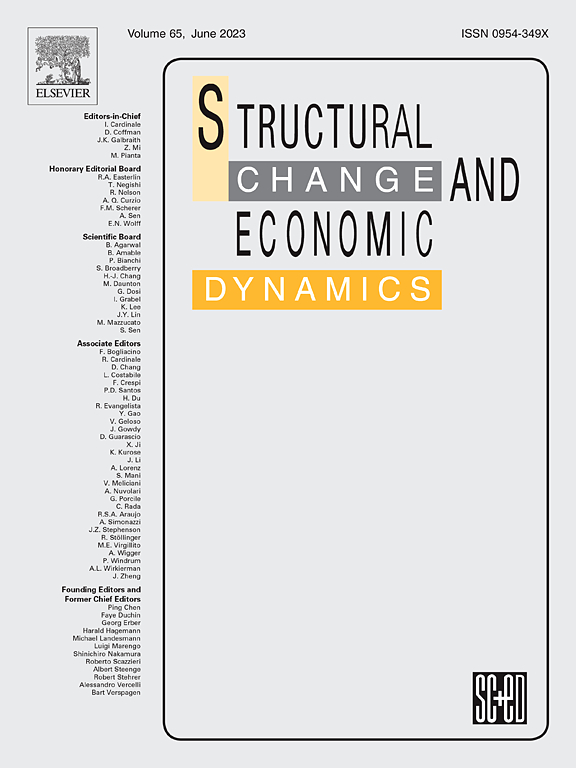Is the increasing carbon pressure an incentive or obstacle to corporate creativity? Evidence from Chinese listed firms
IF 5.5
2区 经济学
Q1 ECONOMICS
引用次数: 0
Abstract
In the context of addressing climate change, innovation is crucial for fostering low-carbon development. This study examines the relationship between carbon pressure and corporate innovation using a sample of Chinese listed firms. The results show a positive association between carbon pressure and corporate innovation, a relationship that remains robust across various tests. The impact of carbon pressure on corporate innovation is particularly strong in firms with younger executives, executives have financial backgrounds, firms that attract high levels of analyst and media attention, and those in the non-high- and new- technology and manufacturing industries. Additionally, we find that carbon pressure promotes corporate innovation by increasing government innovation subsidies and reducing corporate tax burdens. Furthermore, carbon pressure stimulates corporate green innovation and improves innovation quality. Notably, carbon pressure primarily enhances incremental innovation rather than radical innovation. Confronted with carbon pressure, firms are increasing seeking competitive advantages through innovation activities. This study contributes to the literature on the economic consequences of climate change, and provides deeper insights into the factors influencing corporate innovation. Our findings provide valuable practical insights for managers and policymakers seeking to promote innovation in response to carbon pressure.
不断增加的碳排放压力是企业创造力的激励因素还是阻碍因素?来自中国上市公司的证据
在应对气候变化的背景下,创新是促进低碳发展的关键。本文以中国上市公司为样本,考察了碳压力与企业创新之间的关系。研究结果表明,碳压力与企业创新之间存在正相关关系,这种关系在各种测试中都保持强劲。碳压力对企业创新的影响,在高管较年轻、高管具有金融背景、受到分析师和媒体高度关注的公司,以及那些处于非高新技术和制造业的公司中尤为强烈。此外,碳压力通过增加政府创新补贴和降低企业税负来促进企业创新。碳压力刺激了企业的绿色创新,提高了创新质量。值得注意的是,碳压力主要促进了渐进式创新,而不是突破性创新。面对碳压力,企业越来越多地通过创新活动寻求竞争优势。本研究对气候变化的经济影响的文献有贡献,并对影响企业创新的因素提供了更深入的见解。我们的研究结果为管理者和政策制定者寻求促进创新以应对碳压力提供了有价值的实践见解。
本文章由计算机程序翻译,如有差异,请以英文原文为准。
求助全文
约1分钟内获得全文
求助全文
来源期刊

Structural Change and Economic Dynamics
ECONOMICS-
CiteScore
9.60
自引率
4.90%
发文量
159
期刊介绍:
Structural Change and Economic Dynamics publishes articles about theoretical, applied and methodological aspects of structural change in economic systems. The journal publishes work analysing dynamics and structural breaks in economic, technological, behavioural and institutional patterns.
 求助内容:
求助内容: 应助结果提醒方式:
应助结果提醒方式:


